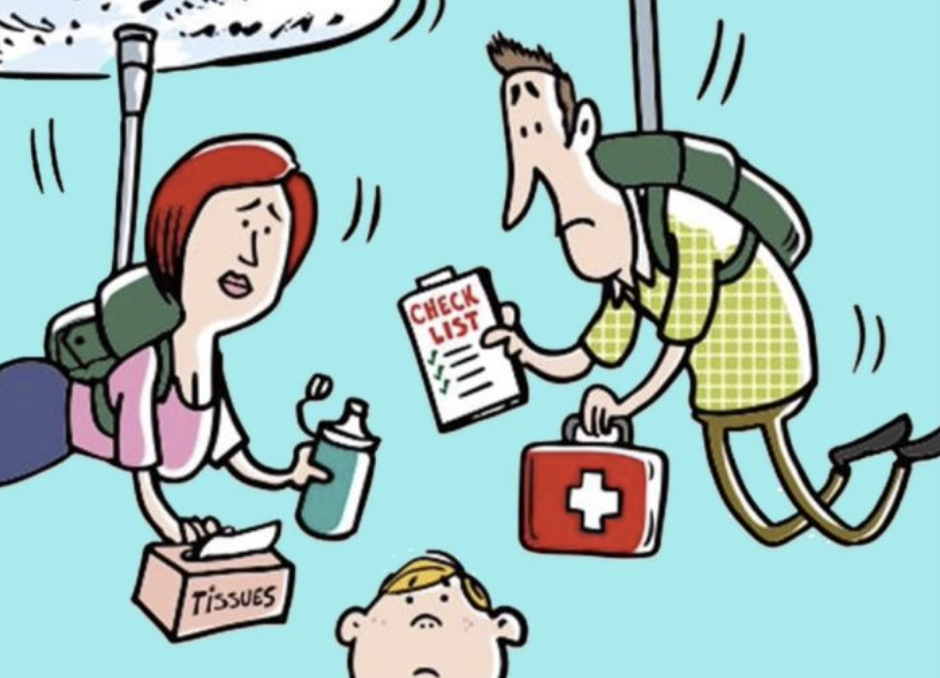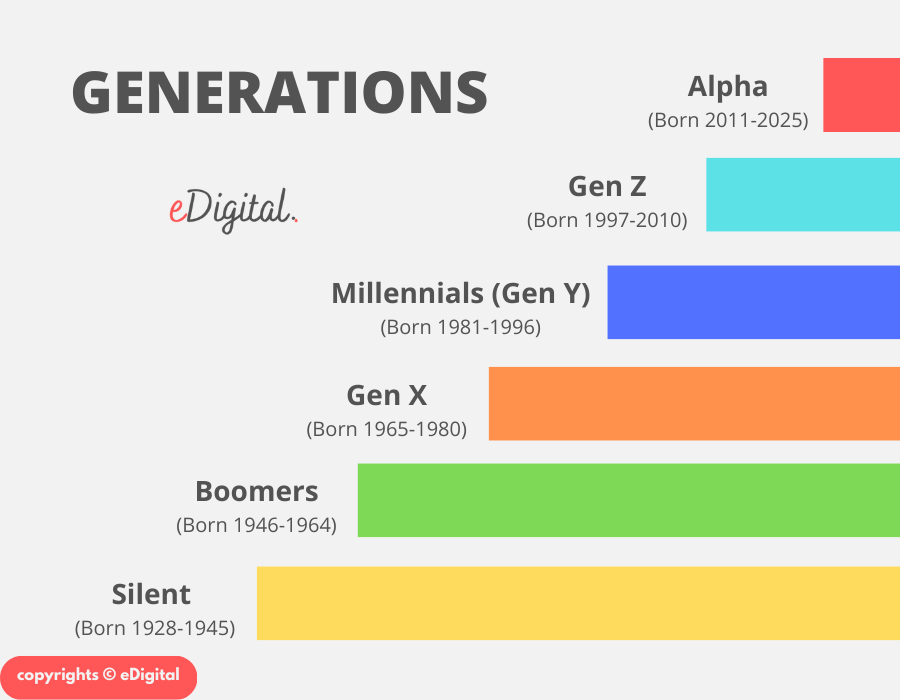In the past, the word “snowflake” has been used to describe an individual who is unique. A parent or a teacher might happen to call a child “ a special snowflake ”, as no two snowflakes are perfectly alike. In our blog, we will be informing you about what is the snowflake generation and the origin of this term. Further, we will be revealing what actually causes the snowflake generation and find out why people usually say that people in the snowflake generation or the millennials are sensitive. Is that true? In addition to this, should we label the millennial generation as the snowflake generation? And why do the boomer’s parents mostly assume that the millennial generation is as sensitive as a snowflake? Is the generation gap a problem? Along with, will “snowflake generation” have any influence on the later generations? Last but not least there are countless effects that might happen to those people who have been labeled as the snowflake generation.

What is the Snowflake Generation?
The snowflake generation is a term used to describe people born from 1980 to 1994, in other words, those that became adults in 2010. ‘Snowflake generation’ refers to youngsters who are easily offended and are viewed as less resilient and more prone to taking offense than previous generations. The term snowflake is used to describe or insult sensitive people who think the world is all about them. While the special snowflake refers to self-obsessed, fragile, easily offended, and people unable to deal with opposing opinions. Self-obsession is used a lot in describing the snowflake generation because it reflects the uniqueness and fragileness of the snowflakes in nature.
Tracing back to the origin of the term, according to the Miriam Webster Dictionary, the term has existed and been used with different definitions for around 150 years. Back in the 1860s, ‘snowflake’ referred to people who opposed abolishing slavery and wanted slavery to survive through the civil war. Then in the 1970s, it became a slang word for cocaine and for white or colored people trying to act white. Later in 1999, the author of the “Fight Club” claimed he was the term’s creator and claimed that comedians experienced a difficult time performing on college campuses because the snowflakes were so easily offended. In the 21st century, the ‘snowflake generation’ was first used by Claire Fox in her book “I Find that Offensive,” about students and teachers at Yale University debating over whether Halloween costumes should not be worn because the costumes were accused of cultural appropriation.
What Actually Causes the Snowflake Generation?
We can’t deny that the character of each generation reflects the society in which they were brought up. Like how the Boomer was labeled as an economic powerhouse because they are born in a peaceful era and the economy is dramatically expanding in their time or generation, Alpha is now the opinion leader in the decision making of each household because they have the most opportunity to access education than others. So before you start complaining about how fragile millennials are let’s see what society is like in their time.
Gen Y or Millennials grow up with a high education standard because their parents who are boomers know that education will guide them to a better future. Bachelor’s degree has become a bare minimum of education and a straight-A is now a must not a could. However, millennials are also the poorest generation because growing up through the global financial crisis, an insecure work climate, and rising debt. Great expectations from the previous generations on them to be successful while the conditions around them do not allow them to have resulted in mental health crises where younger people seek medication more than ever.

Society takes a big part in shaping us but, there is another bigger factor that creates who we are today, our parents. Boomer’s parent, parents of the millennials, are well known as helicopter parents, the parents that micromanage their children’s lives in all aspects. Boomer’s parents decide their life to parenthood because they don’t know hobbies or free time, raising their children the best that they can is their ultimate goal. Yes, it is nice here that parents give so much love and care to their children but helicopter parents can be overprotective. As a consequence, the children are prone to pressures and problems around them because their parents never let them handle them by themselves.

In short, we can say that millennials aren’t sensitive because they are sensitive but it is because of how they were raised and the society that they grew up in that shaped them into who they are today. So it is better to understand than to criticize and label them as the snowflake generation.
Should we label the Millennial generation the snowflake generation?
In a general sense, every generation was imprinted by the distinctive characteristics of people in that period. The adults in each generation always complained about the children of that era, and the simple question that every generation might see is “why don’t our kids behave themselves like us when we were young?” Many people may wonder why this happens every time and our adults may not understand why the children are different from them. According to Adam Hayes (2021), It is called a generation gap, having different aspects and beliefs between one generation and another.

Anyway, many adults called the millennial generation as snowflake generation. Should we name the Millennial generation the snowflake generation? As mentioned earlier about its definition, the deep meaning is quite sensitive; for example, Collins Dictionary defines the young adults of the 2010s, viewed as being less resilient and more prone to take offense than previous generations. Perhaps, we should question whether or not it is fair for millennials to be called the snowflake generation with cynical meaning simply because it is about the gap generation.
In terms of politics, the young generation, sometimes, was named the PC generation (Political Correctness Generation) since they are literally concerned with their living, welfare, and human rights. Indeed, Keir Milburn argues, in his article, millennials may be blunt or straightforward while calling out, but eventually they have reason to be as well as are the most disadvantaged age group in this current situation due to political turmoil, high cost of living, as well as climate change (Milburn, 2019).
In this regard, the snowflake is likely to disdain or insult this group of people’s ability to deal with a currently difficult environment. So, there seems no reason to call them snowflakes even though there is also a good definition but it organically carries a negative meaning in itself.
Will the “snowflake generation” have any influence on the later generations?

The word “snowflake generation” has always been used to exaggerate the gaps between each generation. However, asking whether this term would affect or have any influence on the generations after the millennials or not, is a very tough question to find a common answer. What sounds offensive for one generation might not be offending anymore for the other. People have been labeling this word based on how they perceive that particular generation.
On the one hand, the later generations might find opinions from the former people inaccurate and irrelevant and will not take them into account anymore. On the other hand, these kinds of satirical comments and labeling could cause countless effects such as mental health issues, negative perception towards oneself generation, and self-insecurity. As was reported in a survey conducted by the American Psychological Association, Gen-Z and millennials are the generations having the most mental health problems. Showing that environment, whether it is physically, verbally, or mentally, is still influential for the current society.
Therefore, it is not important to find out if the term snowflake generation would affect other generations or not, what is important is why these words are still in use when we already notice their disadvantages. How can we describe a whole generation with such a small term?
Conclusion
Given this point, we can not blame the young generations or the millennials since the causes of the problem arise from the society in that period, just like the Boomers and the Alpha that has been labeled according to their society during their generations period. What we can do is understand that there is a generation gap and the situation of the Gen Y, who grew up with high expectations and overprotectiveness from their helicopter parents. For this reason, millennial children are prone to pressure and problems and do not know how to handle them by themselves, which may lead them to have mental health issues and self-insecurity. Therefore, do not assume that millennials are fragile or sensitive because they are but it is because of how they have been shaped by their parents and society that they grew up. Ultimately, we can’t just use such a small term like “snowflake generation” to label them.
Reference
American Psychological Association. (2022). Stress in America. American Psychological Association. Retrieved April 24, 2022, from https://www.apa.org/news/press/releases/stress/index
Diaz, A. (2018, October 30). Generation Z reported the most mental health problems. CNN. Retrieved April 24, 2022, from https://edition.cnn.com/2018/10/30/health/generation-z-stress-report-trnd/index.html
Green, A. (2022, March 8). Why do we have A snowflake generation? (everything you need to know). Inspirationfeed. Retrieved April 24, 2022, from https://inspirationfeed.com/snowflake-generation/
HarperCollins Publishers Ltd. (n.d.). Snowflake generation definition and meaning: Collins english dictionary. Snowflake generation definition and meaning | Collins English Dictionary. Retrieved April 24, 2022, from https://www.collinsdictionary.com/dictionary/english/snowflake-generation
Harrison, G. (2020, December 4). What does Snowflake Mean? The Sun. Retrieved April 24, 2022, from https://www.thesun.co.uk/news/5115128/snowflake-term-generation-meaning-origin-use/
Hayes, A. (2022, February 8). Generation gap: What you should know. Investopedia. Retrieved April 24, 2022, from https://www.investopedia.com/terms/g/generation-gap.asp
Hogg, A. (2021, May 26). Snowflake Generation: Why millennials are too soft and who’s to blame. BizNews.com. Retrieved April 24, 2022, from https://www.biznews.com/good-hope-project/2021/05/27/snowflake-generation-millennials
Independent Digital News and Media. (2020, October 6). What does the term snowflake mean and why is it used? The Independent. Retrieved April 24, 2022, from https://www.independent.co.uk/life-style/snowflake-meaning-definition-gammon-piers-morgan-trump-b737499.html
Is it fair to label millennials The ‘snowflake’ generation? . (2021, May 12). Is it fair to label millennials The ‘snowflake’ generation? . Epsom College. Retrieved April 24, 2022, from https://www.epsomcollege.org.uk/academic/academic-blogs/is-it-fair-to-label-millennials-the-snowflake-generation/
Janelle. (2021, June 30). Are parenting styles very different across different generations? Airesone. Retrieved April 24, 2022, from https://airesone.com/parenting-styles-across-generations/
McKay, R. (2020, February 24). Snowflakes: What is The snowflake generation? New Idea. Retrieved April 24, 2022, from https://www.newidea.com.au/snowflake-generation
Milburn, K. (2019, June 21). Like it or not, ‘generation snowflake’ has got a raw deal. The Guardian. Retrieved April 24, 2022, from https://www.theguardian.com/commentisfree/2019/jun/21/generation-snowflake-young-people-wages-housing-leftwing



Honestly,I’ve never know this kind of word in this context before.This is a very interesting and informative article for me! Generation gap is really big problem I think and it’s hard to tell others to understand.So,being respect to every generation would be worked.